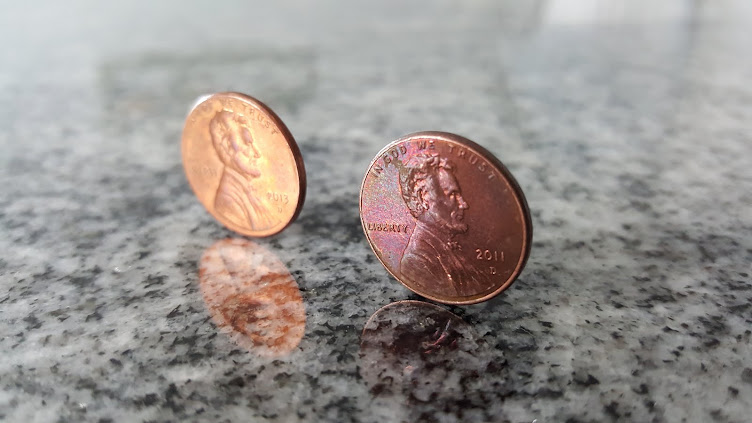I believe that when Christ called us salt, he was referring specifically to the salt added to the sacrifices required by the law of Moses in ancient Israel. In Israel, the salt added to the burnt offerings of the Jews created a “sweet savour” intended to rise up to God. Today, we can add a sweet savour to the sacrifices and suffering of both Christ and our fellow men by helping others come unto Christ and by acting as our brother’s keeper.
The connection between Christ’s New Testament declaration that we are the salt of the earth and the salt used in the burnt offerings of ancient Israel came to me at a BBQ, of all places. Many years ago, I was present somewhere meat was cooking over a flame. I noticed that the meat didn’t smell very appetizing.
A few minutes later, I was struck by a sudden change in the aroma--the meat now smelled very good. I asked the chef what he had done, and he simply stated that he had added salt. Sensing there may be some significance to this, I decided to study the references to salt in the scriptures.
A few minutes later, I was struck by a sudden change in the aroma--the meat now smelled very good. I asked the chef what he had done, and he simply stated that he had added salt. Sensing there may be some significance to this, I decided to study the references to salt in the scriptures.
Leviticus 2:13 says, “And every oblation of thy meat offering shalt thou season with salt; neither shalt thou suffer the salt of the covenant of thy God to be lacking from thy meat offering: with all thine offerings thou shalt offer salt.” Salt was a required part of every meat offering made by the children of Israel. The Old Testament references the “sweet savour” created by these offerings 43 different times. Numbers 28:6 says, “It is a continual burnt offering, which was ordained in mount Sinai for a sweet savour, a sacrifice made by fire unto the Lord.”
It is the salt that makes the offering “sweet.” Otherwise, it is just raw, burning flesh. I believe this idea of a sweet savour applies to Christ’s atoning sacrifice, as well. His suffering is a free gift for all who are willing to hear and do His word. Whether we accept Christ or not, “[s]urely he hath borne our griefs, and carried our sorrows: yet we did esteem him stricken, smitten of God, and afflicted. But he was wounded for our transgressions, he was bruised for our iniquities: the chastisement of our peace was upon him; and with his stripes we are healed.” Isaiah 53:4-5.
Christ suffered for the sins of all, even those who don’t accept Him. When we act as His undershepherds and help someone to repent of their sins and accept Christ, we act as the salt on that portion of Christ’s suffering. That repentance makes His sacrifice sweet to Him and sends up a “sweet savour” unto the Lord. When we “lift up the hands that hang down, and the feeble knees”, we act as the salt on that individual’s sacrifice or suffering, giving it meaning and making it “sweet.” Hebrews 12:12.
Christ’s disciples in His day understood what He meant by calling them the salt of the earth. Ephesians 5:2 says, “And walk in love, as Christ also hath loved us, and hath given himself for us an offering and a sacrifice to God for a sweetsmelling savour.” And in 2nd Corinthians 2:15, it says, “For we are unto God a sweet savour of Christ[.]”
I love the symbolism of a sweet savour. I imagine that savour rising up to God from the temple in Jerusalem in ancient Israel, and today that savour rises up all over the world as we help others come unto Christ, or to feel His love and watchcare. Even the original passage itself supports this application. Matthew 5:13 states, “Ye are the salt of the earth: but if the salt have lost his savour, wherewith shall it be salted? It is thenceforth good for nothing, but to be cast out, and to be trodden under foot of men.” Christ uses the word salt in direct relation to savour.
I am not the savouriest salt around. I do not lift my eyes to the needs of those around me as often as I could or should. I frequently put myself ahead of others and miss their suffering or needs entirely. But this idea of the salt of the earth serving as a symbol of ancient Israel and Christ’s sacrifice helps me to be better. I love the idea that our efforts to bring others unto Him can make His sacrifice sweet to Him, over and over again. We also make the suffering of those around us sweet when we mourn with them, comfort them, and serve them.
May we all strive to remember that Christ never wished anyone to sacrifice without salt, even Himself. There are the raw and hurt all around us, waiting for the sweetness to come--waiting for us to help send up a sweet savour unto the Lord. One of the scribes of Jesus' day understood this. After asking Christ which is the first commandment of all and hearing the response, the scribe said, "Well, Master, thou has said the truth: for there is one God; and there is none other but he: And to love him with all the heart, and with all the understanding, and with all the soul, and with all the strength, and to love his neighbor as himself, is more than all whole burnt offerings and sacrifices." Mark 12:32-33.



